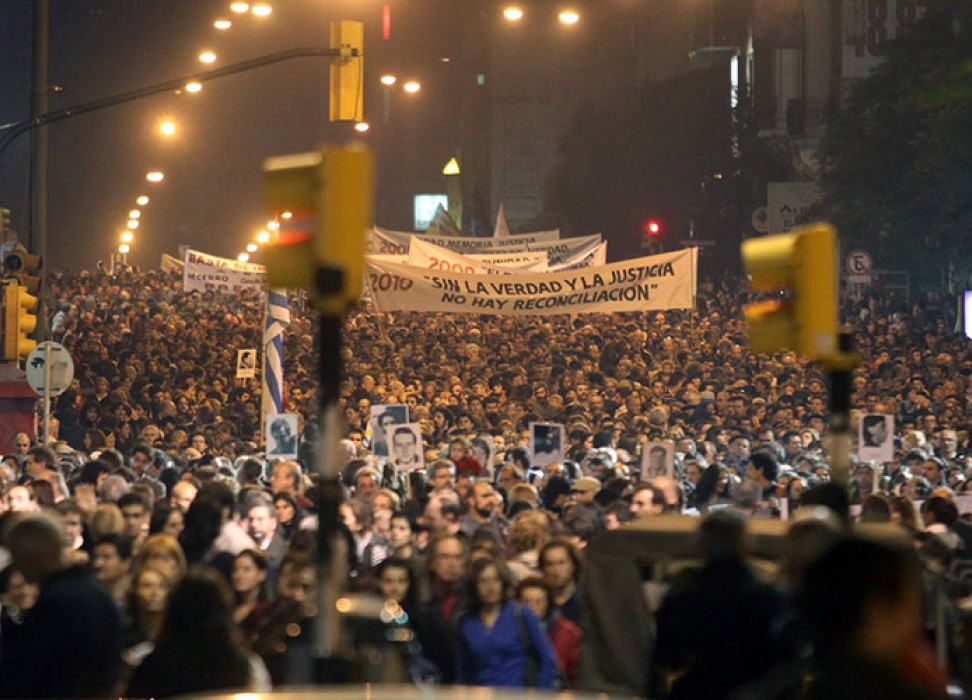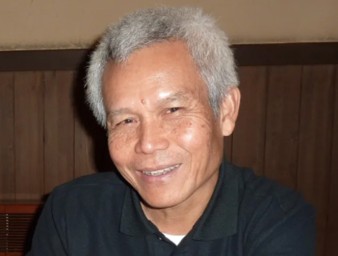Victims of sexual torture seek justice in Uruguay
28 October 2021

“That was the first time he raped me,” said Ana Amorós, now 72, about the day she was taken to her barracks in prison in Uruguay by a colonel after she refused to answer his questions.
Amorós is one of a group of 28 women who are former political prisoners pursuing justice for torture and sexual offenses perpetrated by the military regime that controlled Uruguay between 1973 and 1985.
UN Human Rights has documented numerous human rights violations committed during the Uruguayan dictatorship - many of which were against women - such as torture, killings and enforced disappearances.
Amorós was imprisoned for being a member of an anarchist group. The Uruguayan dictatorship banned all political parties and unions, so anyone belonging to a rival group could be detained.
She was stripped naked, tortured with a riding crop they used to hit horses, and raped, she explained. She was blindfolded, but she said she could sense there were men in the room.
“I always thought that ... that if one day that happened, I was going to bite him,” Amorós said. “I was going to scratch him. I would hit him in the genitals. I thought I could defend myself. I did nothing, nothing.”
After the regime fell in 1985, victims were unable to hold the perpetrators accountable for these crimes due to the 1986 Expiry Law, a law which gave complete impunity to military, police personnel and civilians who collaborated for systematic human rights violations committed during the Uruguayan dictatorship.
But the Inter-American Court of Human rights repealed this law in 2011, which meant the Expiry Law could no longer stop investigations or complaints of past crimes.
Twenty-five years later, these women were finally free to seek justice.
In 2011, the 28 women filed a criminal complaint before Uruguay's courts, for sexual violence and rape against more than 100 people. Recently, in March 2021, they presented their case to the Inter-American Commission on Human Rights.
A pivotal moment for victims
“This is a case of 28 courageous women who denounce human rights violations which they suffered for being women,” said Jan Jarab, UN Human Rights Regional Representative for South America. “It is a clear example of why a gender perspective in the investigation of such crimes, past and present, is urgently needed.”
Jarab explained that UN Human Rights provided the women with support in the public hearing and has been following up with the authorities.
“Immediately after the hearing, there were signs of progress in the case – in fact, the first signs of progress in years – but it is necessary to maintain the attention of the entire human rights community, not just UN Human Rights, on further developments,” he said.
Jarab said this is a starting point for the Government to address other problems that impact victims of the dictatorship. He also hopes that women and other victims of the dictatorship will be inspired to come forward.
Fear and horror in prison
Ivonne Klingler, 72 and a retired doctor, was hesitant about sharing her traumatic story of being tortured and raped during her three-year detainment after living eight years clandestinely.
“The first thing I asked myself was, can I talk about this?” she said. “Who will listen to me? Who will understand me?”
In 1973, Klingler was targeted for being a member of the Communist Party. In January 1982, she was kidnapped by the police, arrested, and tortured, she said.
“They showered me, and I heard around me voices of men who were soldiers that talked about what was going to happen to me,” she said.
Klinger said she never thought she would get to know such a horrifying world, where the main goal was to destroy another human being only because they think differently.
"According to the torturers, we committed two serious crimes: we were women and also militants."
Time is running out
Jarab said this specific case is urgent because it has not progressed significantly for a decade. However, he’s hoping for a positive outcome for the victims, which includes justice and accountability for the perpetrators.
Lucy Menéndez, 67, is hoping that accountability prevails.
“We could not die without people knowing the atrocities they did to us, especially the sexual abuse," she said.
But time is running out.
“The victims are ageing,” Jarab said. “In such cases, justice delayed is justice denied.”
Lucía Arzuaga Gilboy, 62, was a 24-year-old medical student when she was arrested in 1983 for being active in the Union of Communist Youth and the Association of Medical Students. She was tortured before she was sent to the Punta de Rieles Prison, she said.
“Almost 40 years have passed, and I am still waiting for justice and for the truth of what happened to be recognized in my country.”



